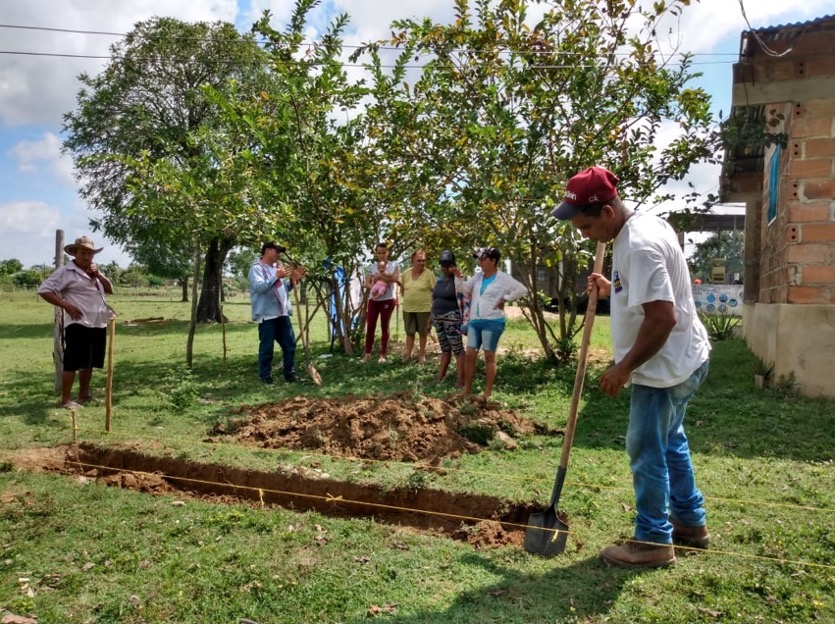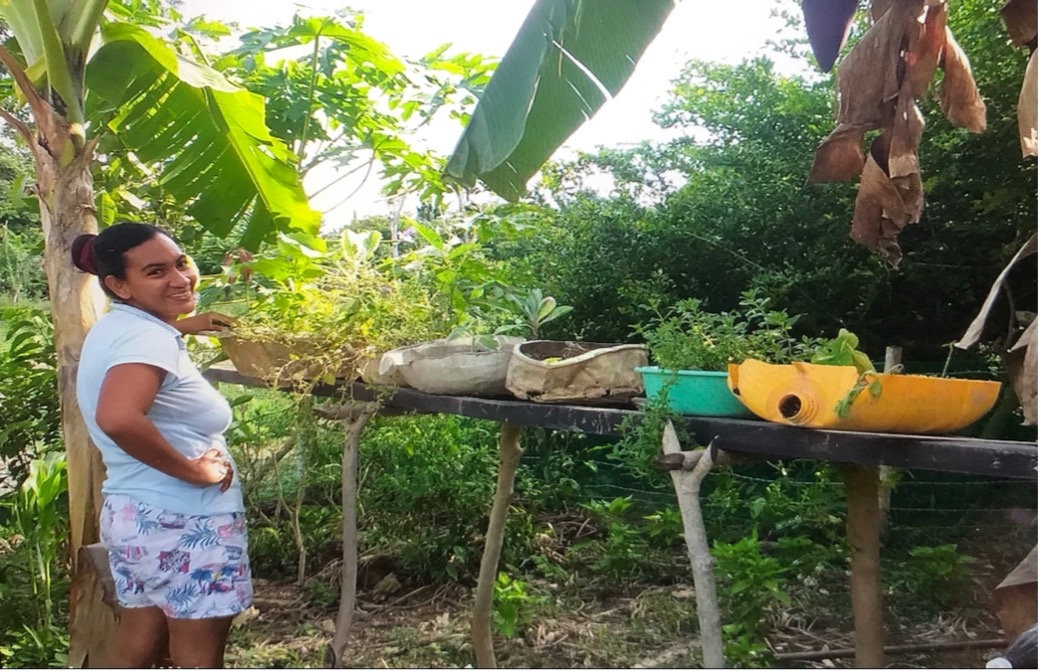


The building block provides agriculture extension services to support effective water management and climate-smart agriculture research and capacity at the community level. It is focused on promoting agro-diverse and local climate resilient crops and the implementation of climate adapted productive practices to enhance rural livelihoods that are adapted to climate projections for both drought and flooding. These agro-diverse productive systems prize local biodiversity and are compatible with the wetland systems thus rescuing and favoring traditional crops that had been lost through monoculture and that have proven to withstand climate stresses more effectively.
Households are provided with home gardening and water management kits including seeds (provided through women managed local seed banks), mulch, and other inputs. Training on how to establish these systems including using low cost irrigation technologies and elevating crop beds is given. Rural extension support allows households to learn by doing through experimentation with a farmer field school approach. This has enabled the rescuing and systematization of local knowledge while creating partnerships with local research institutions. These home gardens have enhanced food security in the face of COVID and recent flooding.
Experience created through a past Adaptation Fund funded project in the region provided the basis for the project to upscale, including creating women managed local seedbanks. The existence of local research institutions and learning centers has also proved to be invaluable to ensure that the knowledge remains local and that extension support is relevant and cognizant of local culture and circumstances. Partnership with indigenous institutions has also been a key source of knowledge.
Rural extension support and capacity building is a main factor when implementing complex projects that look to create a paradigm change in managing climate risk. Working through this component has allowed the project to gain a better understanding of community needs and interest in enhancing resilience. More importantly it has allowed the project to provide tangible results to communities that have demonstrated their importance as the region has faced recent flooding. These solutions have in fact proven to be resilient to the flooding challenges as they were designed with climate extremes in mind and making use of hydrological modelling.
This building block has also benefited by working with local responsible parties to ensure that agro diverse productive systems are in fact compatible with the ecosystems and create a positive relationship with the wetlands. Further by working with local seed banks the project has been able to support local economies and ecosystem compatible livelihoods. The role of local research institutes has been valuable allowing information and innovation to remain within the region.